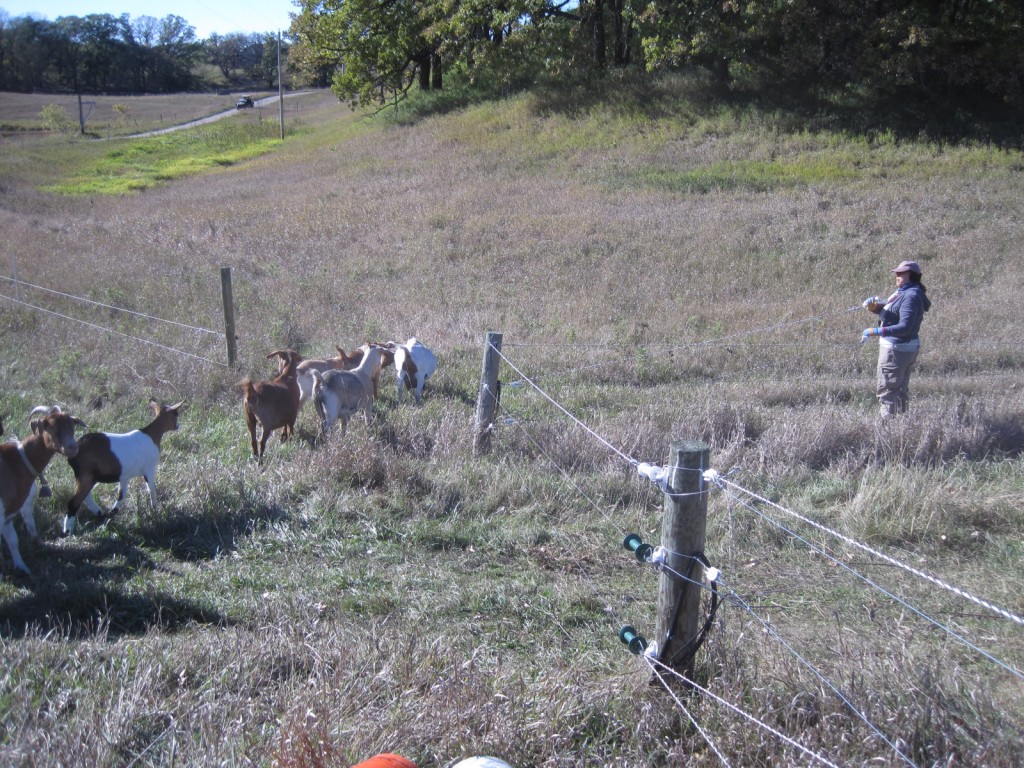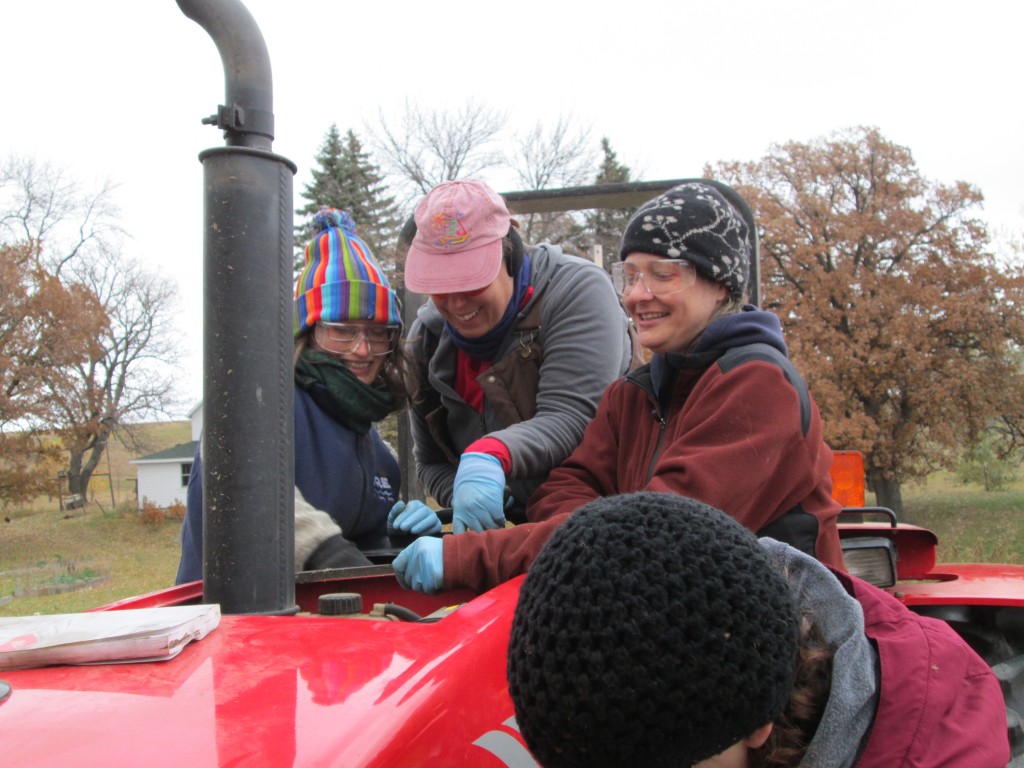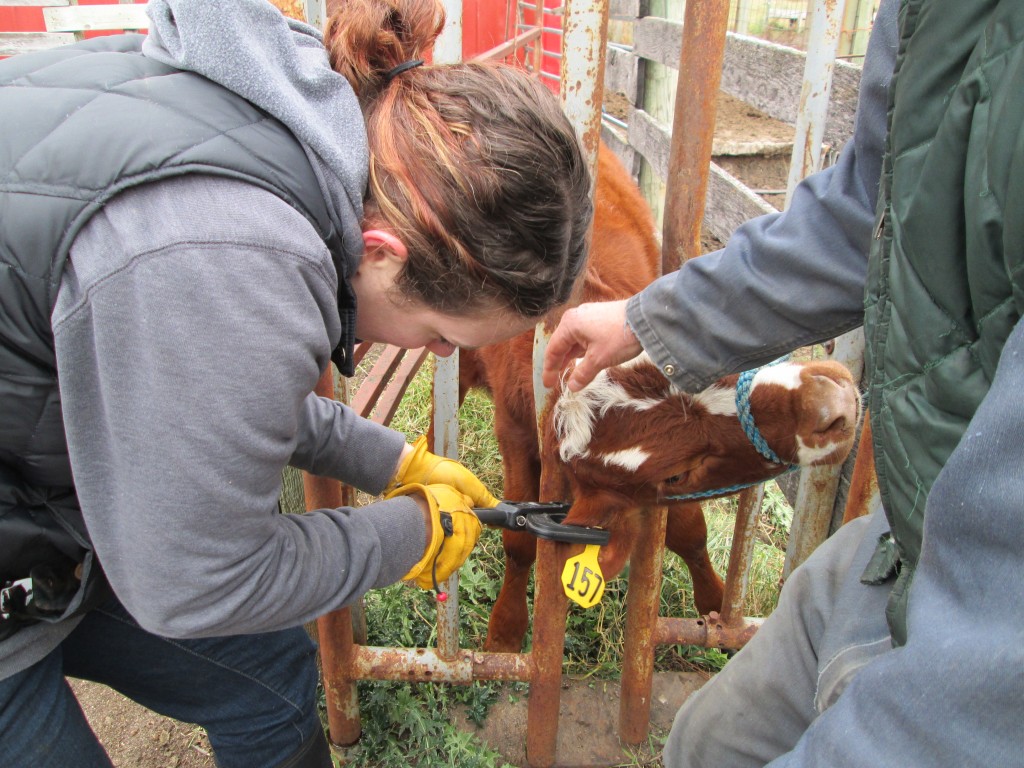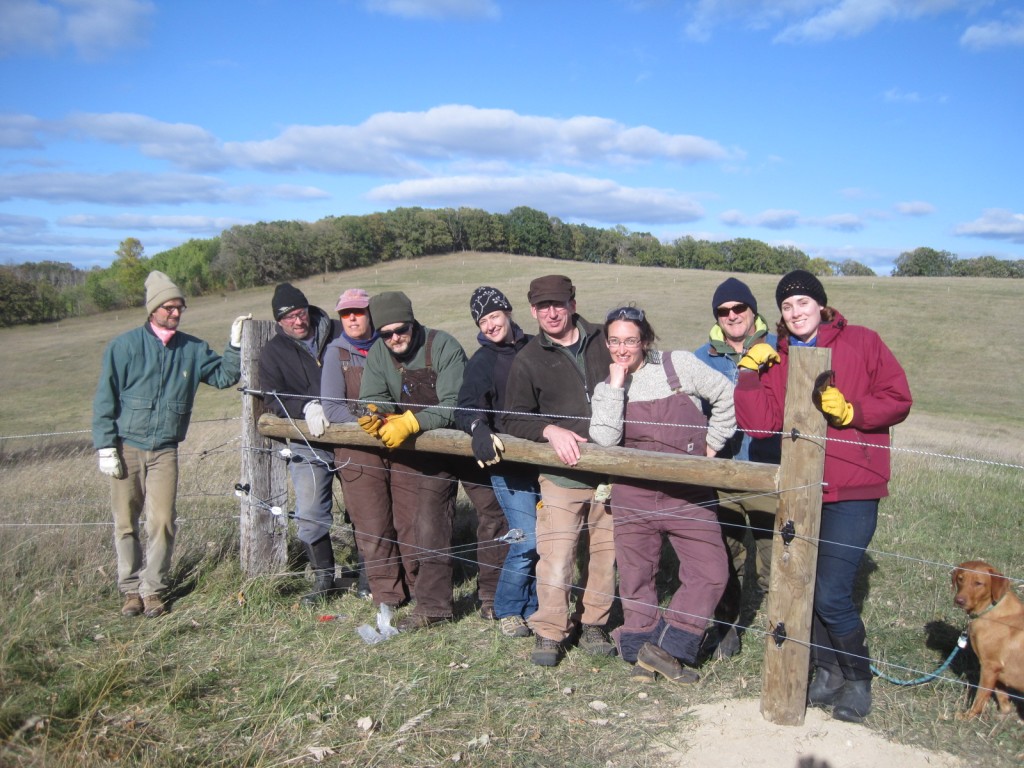Blog post by Ariel Herrod, CURE Water Program Coordinator. Photos by Sue Wika, Sustainable Farming Association (SFA).
Thanksgiving is a time of reflection and gratitude, especially for the food that sustains us, the bounty of our soil. The work, thought, and decisions that go into farming are constantly awe-inspiring, and the impacts that these decisions have on our land and our bodies reminds us of the power that farmers have. I had an opportunity to reflect on this while I was taking the Farm Skills 101 class offered by the Sustainable Farming Association.
For three weekends in October, I learned from Sue Wika, Tom Prieve, and Kent Solberg: the very same folks that made the Sustainable Food Production program at Fergus Falls such a fantastic experience for their students. Unfortunately, only three classes graduated before the program was nixed by the Minnesota State Colleges and Universities system.
The good news, however, is that it’s pretty hard to squash a committed group of farmer-activists, especially when they are backed by a robust grassroots campaign, and now the program has been reborn. I had a chance to sample it in its new iteration: a series of classes offered through the Sustainable Farming Association.

While it was clear that Sue, Tom, and Kent struggled to squeeze a year’s worth of instruction into three weekends, they stayed focused on the subject of this class: giving my five classmates and me direct experience doing the everyday tasks that keep a farm running. It was an excellent chance to spend time on two different farms and learn about two more of the many ways that farmers are managing their land.

On Tom and Sue’s Paradox Farm, we also saw first hand the impact their management strategy has on the local water quality. Their system is based in rotational grazing of mostly goats and sheep, and as we took a walk down to one of their lower pastures, we passed over a small stream lined on either side by dense stands of grasses, forbs, and brush. The stream–which eventually feeds into the Minnesota River via the Pomme de Terre–runs clear and cool year round, an indication that it is fed by plentiful groundwater resources. As we paused by the water, Sue waved her hand upstream, in the direction of their calcareous fen–a rare wetland ecosystem that also relies on a consistent supply of groundwater. This evidence of good groundwater reserves under their lands indicates that there is good groundwater recharge and minimal stress from pumping on their land and adjacent farms.

The existence of these features at Paradox just reinforces what we already know: there are farm management strategies that support clean water and a healthy ecosystem at the same time that they provide nourishing food and support vibrant rural communities. It’s inspiring to see such farms in action, meet the farmer-leaders who manage them, and share dreams with the aspiring sustainable farmers of tomorrow.
This holiday season, let’s be grateful for family and friends as always, and let’s also remember our food and our farmers.



